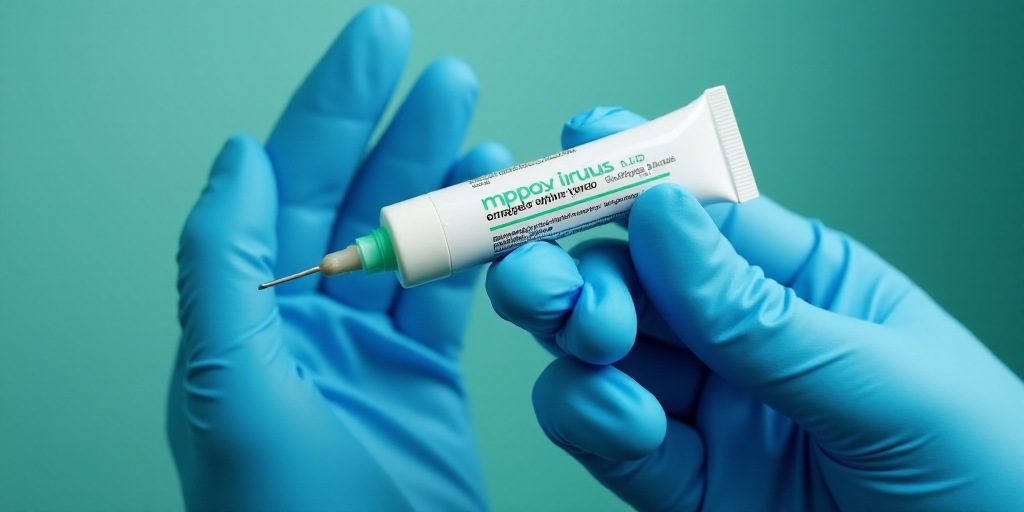Background on Mpox and Its Impact
Mpox, formerly known as monkeypox, is a viral disease that has recently seen a multicontinental outbreak. The World Health Organization (WHO) released its latest report on July 31, 2025, concerning this global spread. However, the report failed to include critical information about Mexico’s situation despite public data indicating a worrying trend.
Mexico’s Rising Mpox Cases
In June 2025, Mexico reported 131 mpox cases, which is significantly higher than other countries in the Americas. In contrast, the United States reported 55 cases during the same month, following a peak in April with 103 cases. Mexico’s case count is only an eighth of the US total (4,454 vs. 35,106), yet it registered 2.4 times more cases in June (131 vs. 55), an 18.7 times higher multiplier than the outbreak average, suggesting local transmission control issues.
Mexico’s High Mortality Rate and Vaccine Access
Since 2022, Mexico has officially reported at least 37 mpox deaths, including recent reports of two fatalities in Cancun and one in Jalisco. The high mortality rate, combined with limited access to appropriate vaccines for at-risk populations, exacerbates the situation. In comparison, the US reports 63 deaths but with a much lower mortality rate.
International Implications
The WHO’s omission of Mexico in Report 56 raises concerns about national authorities’ coordination with the supposed global health governance body. It is crucial for Mexican authorities to strengthen surveillance, share data promptly with the WHO, and prioritize protecting vulnerable populations. The mpox situation in Mexico is not only of high concern but requires immediate action to prevent a greater impact on public health and the country’s international image.
Vaccine Availability and Mexico’s Resistance
Notably, Mexico has resisted acquiring the mpox vaccine despite recommendations from the WHO, CDC, and EMA. This has positioned Mexico as one of the few countries with high case incidence but without vaccination plans, according to a Lancet Regional Health – Americas article.
Jynneos Vaccine Authorization
Mexico received the Jynneos vaccine dossier in 2022, but only authorized it in September 2024 after pressure from the Danish company. A year later, the Mexican government still hasn’t chosen to purchase it.
Jynneos is a two-dose vaccine (administered four weeks apart) indicated exclusively for adults over 18 with high risk of virus exposure, such as communities with active sexual transmission (e.g., the LGBTQ+ community).
Evidence shows Jynneos’ effectiveness in countries like the US, Canada, and Argentina, where vaccination campaigns have significantly reduced cases in 2025. For instance, the US halved its cases in three months.
Unlike Mexico, which has chosen not to invest in this vaccine, Colombia acquired 25,000 doses of a Japanese mpox vaccine (LC16m8) in 2022 for at-risk population trials, while Brazil, Chile, and others joined the OPS purchase mechanism.
Implications of Not Vaccinating in Mexico
Authorities should consider protecting vulnerable groups, like people with HIV or immunosuppression, who make up a significant portion of deaths, especially with the anticipated arrival of global visitors for the upcoming soccer World Cup. The lack of widespread vaccination in Mexico, coupled with the rising cases (from 5 in January to 131 in June 2025), increases the risk of community transmission, particularly in urban centers like Mexico City, Jalisco, and Quintana Roo.
There have been pressures and mobilizations demanding mpox vaccination, but they’ve been ignored by authorities. In August 2024, the Mexican LGBTTTIQ+ Coalition petitioned Cofepris for urgent approval of an mpox vaccine, highlighting the vulnerability of sexual diversity communities, which represent most cases in Mexico due to the sexual transmission pattern.
Since July 2022, Mexican doctors and academics like Jorge Saavedra, Ricardo Baruch, and Alain Pinzón have advocated for mpox testing and vaccine access. In a 2023 letter published in The Lancet, they urged health officials, including then-deputy secretary Hugo López-Gatell, to authorize Jynneos, criticizing the contradiction between international recommendations and local inaction.
Following the decline in vaccination during the previous administration, in 2023, Mexican officials like Health Secretary Jorge Alcocer questioned Jynneos’ safety and efficacy, despite the CDC reporting that vaccinated individuals had 14 times lower infection probability. This stance drew criticism as Mexico led global daily cases at that time.
Cost of the Vaccine: A Barrier to Implementation?
Some Mexican officials argue that mpox doesn’t pose a general risk since transmission is concentrated in specific groups. This perception might have deprioritized mass vaccination.
However, considering the government’s austerity policy in recent years, the primary factor is likely the vaccine’s price. Jynneos costs around $100 per dose, though the company differentiates it per country and volume purchased. According to the Pan American Health Organization (PAHO), several Latin American countries, including Mexico, faced difficulties acquiring vaccines due to high costs and Bavarian Nordic’s demand for liability exemptions for side effects.






